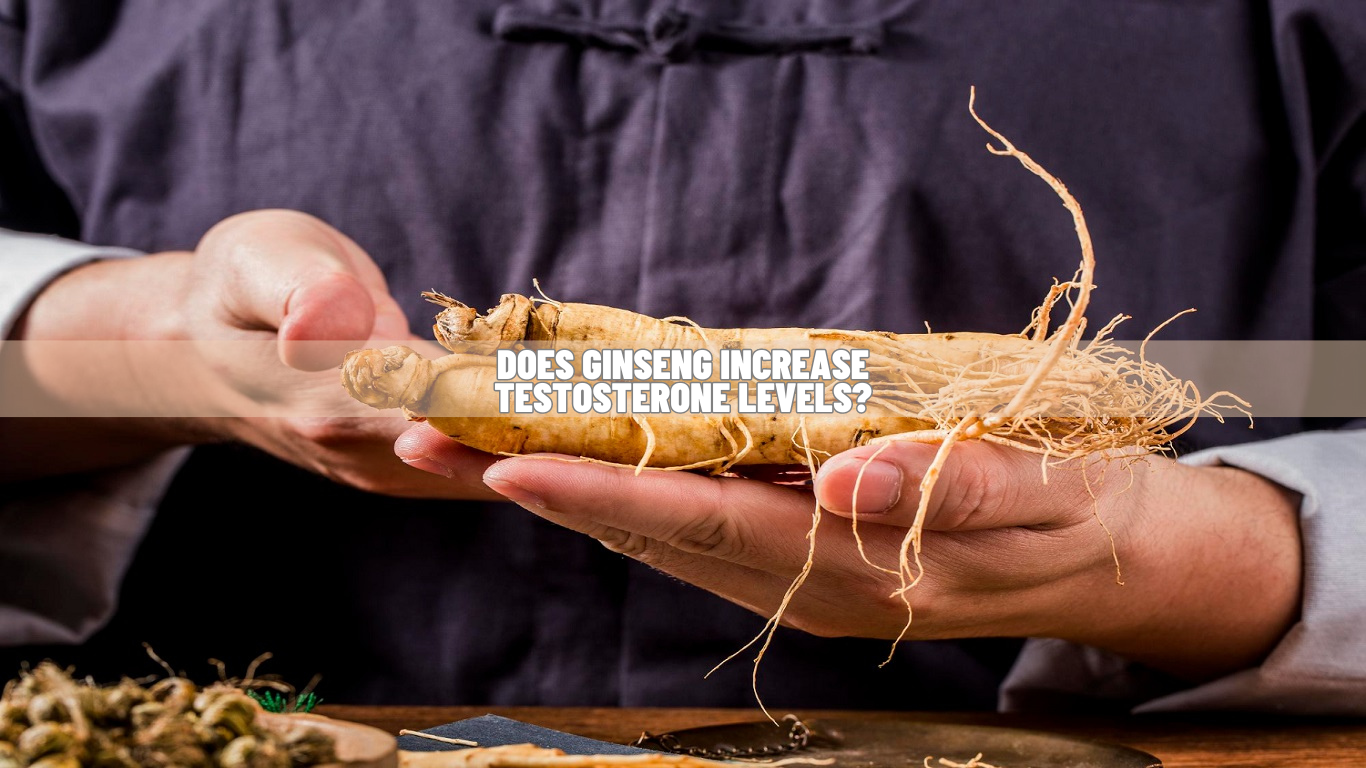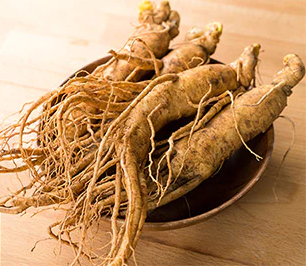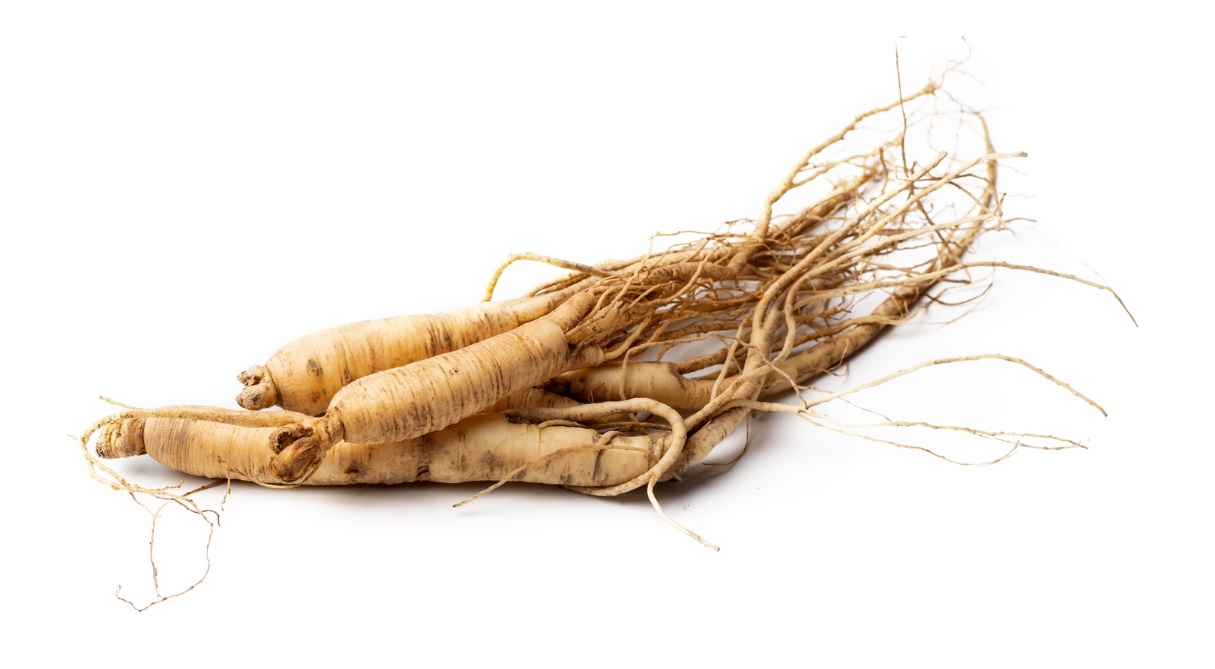Does Ginseng Increase Testosterone Levels? Know Science!

Ginseng is one of the most popular ingredients in the testosterone boosters market, and its demand is constantly on the rise. Known for its aphrodisiac capabilities, this century-old herb has become a part of most of the top testosterone-boosting formulas you get out there. But while improving libido is one thing, how does ginseng fair when it comes to tackling testosterone deficiency?
The good news is that ginseng is one of the most well-researched ingredients known to exert a positive effect on testosterone health. It commonly comes in two types – Korean or Panax ginseng and American ginseng. Both differ from each other in their active components, and it is the Korean variant that is effective on testosterone and male reproductive health.
In this article, We will take you through the various scientific evidence surrounding ginseng, whether or not it supports testosterone production, how it works, and more. Let’s take a look.
Ginseng’s Correlation With Testosterone – Primary Evidence

When we delved into the various clinical trials and reviews on Ginseng’s effect on testosterone, We found a lot of supporting data. One of the studies from 2013 found ginseng to be effective in improving testosterone levels and overall male reproductive health, including aphrodisiac benefits, and for treating sexual dysfunction.
One of the early yet significant studies demonstrated that a higher dose of Panax ginseng (5%) supplementation in animal subjects for 60 days led to a significant rise in testosterone levels.
Meanwhile, another team of researchers, in a more recent human study involving women of varying ages, also found that ginseng intake for seven days led to a prominent rise in salivary testosterone levels and DHEA. In this case, though, ginseng isn’t working on the source of testosterone – the testicles or any triggering any other male body processes because the test subjects are women. However, the fact that it increases the sensitivity and the response of the androgen receptors (whether in the male or female body) and signals the body to make more testosterone should be considered.
Ginseng contains chemical components called ginsenosides, which are plant saponins. It looks like these compounds are behind its impact on androgen. We mapped an important study where more than 60 men with infertility were divided into control and treatment groups. The group that was treated with ginseng extracts showed not only an improvement in sperm parameters but also an increase in testosterone, luteinizing hormone (LH), DHT, and FSH levels.
Additionally, in the same study, researchers also found that the herb decreased prolactin (PRL) levels, which in excess can lead to male breast enlargement. The findings further suggested that ginseng has the potential to influence hormone production from the source level by triggering the hypothalamus-pituitary-testis axis.
Some Data With Nil Or Negative Results
Until now, we discussed some of the best studies that have demonstrated ginseng’s significant ability to improve testosterone levels. However, during our research, We also found a couple of data that either failed to show any effect on testosterone or had reversely impacted its levels. It is important to mention that here because we deliver the full narrative and comprehensive analysis to our readers.
Let’s take the first study. In this, the scientists examined the effects of red ginseng extract on ethanol-exposed sperm of mice. While ginseng was able to reduce the toxic effects of ethanol and improve sperm motility, testosterone and luteinizing hormone (LH) levels were slightly reduced in the ginseng-treated group.
Next, we have a couple of studies that demonstrate that ginseng supplementation had no effect on testosterone whatsoever.
In one of the studies, a group of bodybuilders were given ginseng supplementation to examine its effect on various parameters, including testosterone. The research team concluded that while there was no change in the anabolic index, it did lower the testosterone levels when taken along with resistance training. One explanation could be that the testosterone levels in these athletes would have been already much elevated as a result of training. Taking ginseng would have just brought it back to normal.
The other study to investigate the beneficial effect of Korean ginseng on erectile dysfunction in men found that while the herb was able to improve sexual functioning in men, there were no changes in testosterone concentration in the blood. While testosterone levels play a major role in erection functioning in men, the possible reason could be that ginseng enhances the nitric oxide release in the blood, leading to better blood circulation and oxygen flow across the body. This, in turn, improves muscle functioning, leading to better erectile function.
Ginseng’s Effect On Testosterone: Possible Mechanism

Earlier, in one of the studies, the researchers suggested that ginseng can influence the hypothalamus-pituitary-testis (HPA) axis by interacting with the androgen receptors present on the walls of the axis. This then triggers testosterone production.
In another study, the research team did a comprehensive analysis of ginseng’s effect on the two receptors- androgen and estrogen receptors. They elaborated on how these receptors play a crucial role in testosterone production and balancing through 5-α-dihydrotestosterone (DHT) expression. They also specified that decreasing sensitivity of the testosterone receptors can lead to sexual dysfunction, including infertility.
Later, the findings from the same study suggested that herbs like ginseng can improve the androgen receptor sensitivity, thus maintaining their health. This mechanism helps modulate testosterone production as per the body’s needs. For instance, if the testosterone levels in your body are low, it will upturn the production, bringing it to normal levels. On the other hand, if the testosterone levels spike beyond the normal levels, the receptors may even bring it down to the normal to maintain the balance.
Bottomline- So Does Really Ginseng Boost Testosterone?
The short answer to whether ginseng increases testosterone levels is yes; it definitely has a positive impact on testosterone health.
While in case of low testosterone conditions, ginseng may help boost the levels directly, in other situations, supplementation of this herb can maintain hormone health by exerting a positive effect on various other body processes linked to testosterone production and synthesis. In cases where your hormone shoots up over the normal range, ginseng can even bring you back to the clinical range as required by the body to get your body functions going effortlessly.
This makes Ginseng a great addition to testosterone boosters and one of the notable ingredients to keep in mind if you are working on levelling your testosterone.
